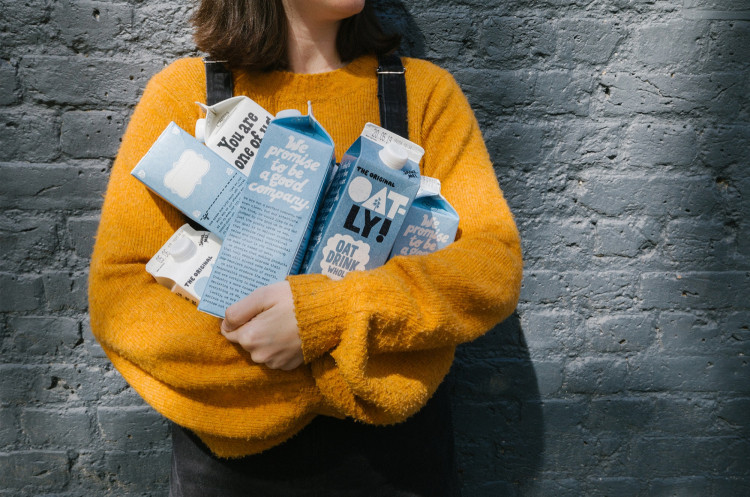Shares of Swedish food company Oatly surged by more than 30% during its U.S. stock market debut Thursday.
Based on its initial offer price, the company known for its plant-based milk alternative was valued at more than $10 billion.
Oatly sold a total of 84.4 million American depositary shares with an initial offer price of $17 per share - the higher end of its expected $15 to $17 range. Once it was listed, the stock immediately jumped by 19% to $20.20 on the Nasdaq. The stock hit a high of $22.74 per share intraday.
The company said it plans to use the proceeds of the share sale to fund its global expansion plan. Oatly said it aims to quadruple its production from 350 million liters of oat-based milk to 1.4 billion liters within the next two years. To achieve this, the company plans to build a network of factories - including a large factory in Peterborough, East Anglia.
Oatly's chief executive officer, Toni Petersson, said demand for the company's oat milk had "exploded" during the pandemic. He said the company has been recording triple-digit growth throughout its different global markets.
In its latest earnings report, the company said its sales doubled from just $204 million in 2019 to around $421 million last year.
"We currently have four factories and by the end of 2023, we're going to have nine. Demand is no problem ... it is our ability to supply that is the thing," Petersson said.
Oatly initially announced its plans to go public in February. Earlier in the week, the company announced that it would be pricing its shares at around $17 at the top of the range. The company's rapid growth over the past year has attracted several high-profile investors such as Blackstone, Jay-Z and Oprah Winfrey.
Analysts said Oatly rise can be attributed to both the recent plant-based trend and the company's guerrilla marketing tactics. The company directly went toe-to-toe with the dairy industry in some countries, with one advert proclaiming "Wow, no cow!"
Oatly also markets its products as significantly greener than traditional milk. The company said one liter of its oat-based milk produces 80% less greenhouse gas emissions, 79% less land usage and 60% less energy consumption when compared to cow's milk.





